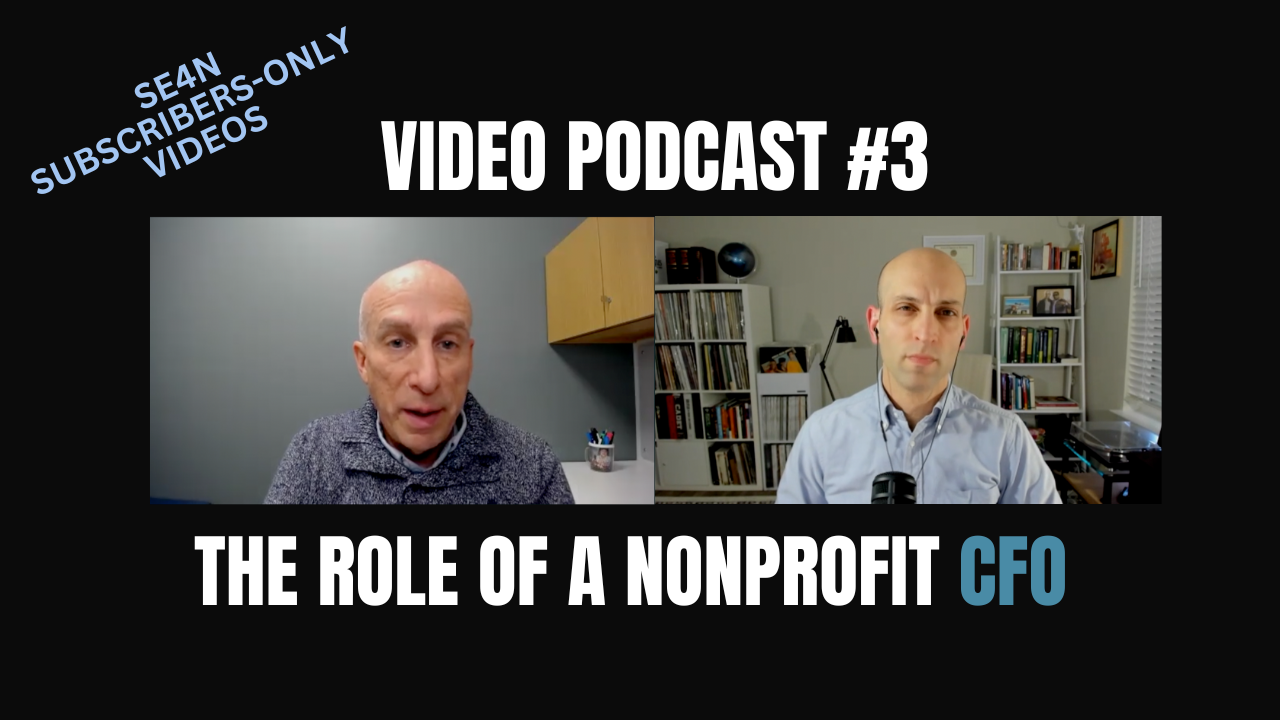
Blog.
Most Recent Posts

Integrating Financial Health Assessments into Your Organization’s Planning Process
The markers for tracking and assessing a nonprofit organization’s financial health are not a mystery. The key elements of financial health (operating reserves, funding, and operational expenses) are generally easy to identify and understand. You just need a willingness to keep your eyes open and a commitment to pause and make an honest assessment of a financial picture that has most likely been changing.
![WORKSHEET: Financial Health Assessment and Implementation Framework [SUBSCRIBERS-ONLY]](https://images.squarespace-cdn.com/content/v1/5e6ccadfb4659c1d51df14d5/48a2d35c-486b-46e5-94fa-d782fda3de9f/isaac-smith-CbXmEkOrzSg-unsplash.jpg)
WORKSHEET: Financial Health Assessment and Implementation Framework [SUBSCRIBERS-ONLY]
The purpose of this Financial Health Assessment and Implement Framework worksheet is to help you to step back and assess your organization’s recent financial position and set the stage for planning the next two years. This worksheet will help you to look back at recent history while looking forward to create a path to improve your organization’s financial health and enhancing sustainability.

Q&A #162 – Can nonprofit volunteers deduct the value of their services as a charitable contribution?
The value of a volunteer’s time for in-kind services donated to a nonprofit organization is not tax deductible, and an organization should never state the dollar value of a volunteer’s services in an acknowledgment letter. However, it may be appropriate to provide volunteers with an acknowledgment letter that generally describes the services they provided so that volunteers can deduct certain eligible unreimbursed expenses.

VIDEO PODCAST: Improving your Form 990 Review Process
Mike and Ben discuss the process of reviewing and approving drafts of Form 990, the steps nonprofit organizations can take to improve their Form 990 review and approval process, the importance of getting input from both financial and non-financial perspectives, how to approach the questions on page 6, Part VI, Lines 11a and 11b of the Form 990, and more.
![Watching Over Pledges Receivable During Periods of Change and Uncertainty [SUBSCRIBERS-ONLY]](https://images.squarespace-cdn.com/content/v1/5e6ccadfb4659c1d51df14d5/1709998726211-M7RPVKBN39H47RUV4BBW/pexels-cottonbro-studio-5909800.jpg)
Watching Over Pledges Receivable During Periods of Change and Uncertainty [SUBSCRIBERS-ONLY]
Pledges receivable are a vital asset on a nonprofit organization’s balance sheet. However, this asset is highly sensitive to changing economic conditions and donor sentiment. Understanding how past management actions have impacted pledges receivable, and learning to adopt new management tactics, is vital to protecting current pledges receivable and attracting new pledges.

TEMPLATE: Current Operating and Intermediate Funds Cash Management Guidelines
This Cash Management Guidelines template is designed to help your organization set targets the management of both current operating funds and intermediate funds, establish investment guidelines consist with your organization’s cash management needs.
![The Importance of Keeping Records of Board and Officer Terms [SUBSCRIBERS-ONLY]](https://images.squarespace-cdn.com/content/v1/5e6ccadfb4659c1d51df14d5/1708259752668-UV427L34TF605LFDNOJV/folder-626334_1920.jpg)
The Importance of Keeping Records of Board and Officer Terms [SUBSCRIBERS-ONLY]
Corporate recordkeeping is an area where nonprofit organizations often fall short of best practices. One common pitfall is the failure to maintain a list of the current Board member and Officer terms of office with precise start and end dates. This oversight seems small but can have very significant consequences, especially when an internal dispute arises.

VIDEO PODCAST: The Role of a Nonprofit CFO
Mike and Ben discuss the importance of CFOs taking on a broader role in order for nonprofit organizations to thrive and reach their fullest potential as well as the challenge of balancing their traditional finance duties with their role as a strategic thought leader within the organization. Additionally, Mike and Ben discuss tactics for navigating this balance through improving the integration of the CFO within the C-Suite, more effective financial messaging and communications, and having more strategic financial discussions.

Why Gift Acceptance Policies are Important and Must Be Periodically Reviewed and Updated
A gift acceptance policy fills many important roles for a nonprofit organization, including acting as a set of guidelines for fundraising efforts, a tool for risk management, and a protector of the organization’s good governance practices, mission, ethics, reputation, and culture. These characteristics are naturally sensitive to unexpected change and evolving economic conditions, so regularly reviewing and updating your organization’s gift acceptance policy is essential.

TEMPLATE: Donor Acknowledgement Letters
These donor acknowledgment letter templates provides sample language that generally satisfies basic IRS requirements for the most common donation scenarios, including cash contributions, non-cash contributions, as well as cash and non-cash gifts that are treated as quid pro quo contributions.

Five Nonprofit Bylaws Issues That Are Often Overlooked
All nonprofit organizations should regularly review and assess their Bylaws to ensure this key governing document complies with the law and is optimally aligned with the organization’s governance needs and operational practices. The following are five common Bylaws oversights to look for when doing your organization’s next Bylaws review.

VIDEO: What is Deferred Income? | Nonprofit Glossary
SE4N's A. Michael Gellman provides a short summary of the definition of deferred income, why deferred income is a liability on a nonprofit organization’s balance sheet (statement of financial position), how deferred income impacts an organization’s operations and cash flow, and more.

Establishing a Form 990 Review and Approval Process
Many nonprofit organizations treat the annual Form 990 filing like a sprint at the end of a long 5K race. After the year is completed and the audited financial statements finally appear, the rush to get the Form 990 assembled and filed too often becomes a hectic “mad dash.” Formalizing the process for review and final approval of the Form 990 before filing will help to avoid mistakes, better reflect current conditions, and show the organization in the best possible light.

VIDEO PODCAST: Common Form 1099 Questions from Nonprofits
Mike and Ben discuss the basics of the Form 1099 rules and address some questions that are frequently asked by nonprofit organizations related to the Form 1099, including whether nonprofits are required to comply with the Form 1099 rules, whether a 1099 is required when the payee is also a nonprofit organization, whether a 1099 is required when reimbursing Board members for expenses, the importance of timely collecting Forms W-9 and avoiding 1099 mistakes, and more.

Q&A #161 – Can a foreign nonprofit organization qualify for 501(c)(3) status?
Charities formed outside of the United States may qualify for 501(c)(3) status so long as they satisfy the requirements that apply to 501(c)(3) organizations under U.S. law. This status makes it easier for foreign organizations to receive grants from U.S. private foundations and mitigate or avoid U.S. income tax on revenue received from U.S. sources. However, donors generally cannot use the charitable deduction under U.S. tax law for contributions made to organizations formed outside of the U.S., so many foreign organizations form affiliated “friends of” organizations in the U.S. for this reason.